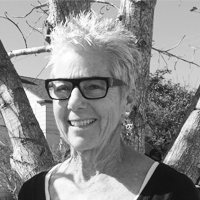Why Attachment?
Have any of you ever been sick and hoped that someone would take care of you? If so, you usually want mom to take care of you, and you long for it. With that, you have experienced an attachment bond. Without an attachment bond, you would not think about someone taking care of you, but just about being sick. Most of us who have experienced secure attachment think about those people who could care for us and relate those to real experiences that we have had.
What is Attachment?
The textbook definition of attachment is any form of behavior that results in a person attaining or maintaining proximity or nearness to some other clearly identified individual who is conceived as better able to cope with the world. In many cases, this is a parent. I will use parent interchangeably with caregiver in this presentation today. Either way, it is a clearly identified individual with whom the person wants to be close. It could be a mom or a dad, an aunt or an uncle, or a grandparent. Usually, it is one person.
Why is it Important?
Early attachments determine your ability to sooth or regulate yourself and your emotions. The Occupational Therapy Practice Framework (OTPF) addresses emotional regulation skills, and this is something that we treat in infants and toddlers. Attachments also determine one’s self-concept or sense of self-esteem throughout a lifetime. One gets a sense of whether they are worthy of love and respect with attachments. They also determine the ability to form healthy relationships throughout life. Attachments affect our ability to take care of infants and toddlers.
Our ability to regulate emotions or feel good about ourselves and maintain positive relationships throughout life often depends on our early relationship with our primary caregiver, often a parent, as well as the early family environment that we had. The earliest emotional relationship develops from zero to three years, and these attachments sustain us throughout our life. Attachment behavior shows up in different ways and in different periods of our lives, which I will address later.
Background and Context of Attachment
John Bowlby
John Bowlby is considered the father of attachment. He was a British psychoanalyst who practiced in the early 20th century. He was the first person to propose how infants developed into social beings. He believed that real, early relationships determined later ones, as well as one’s self-concept, self-regulation, and cognitive development. By real, I mean actual early relationships. At that time, psychoanalysts did not believe as much in the actual relationship that one had. They mostly thought about relationships that were reflected or imagined. The fact that Bowlby thought about the real relationship that a caregiver has with an infant as a precursor for later ideas was quite different. He was somewhat of an outsider in the psychoanalytic community at that time, as this idea was thought to be outrageous. His ideas were not only based on a professional life, but also on his personal life.
